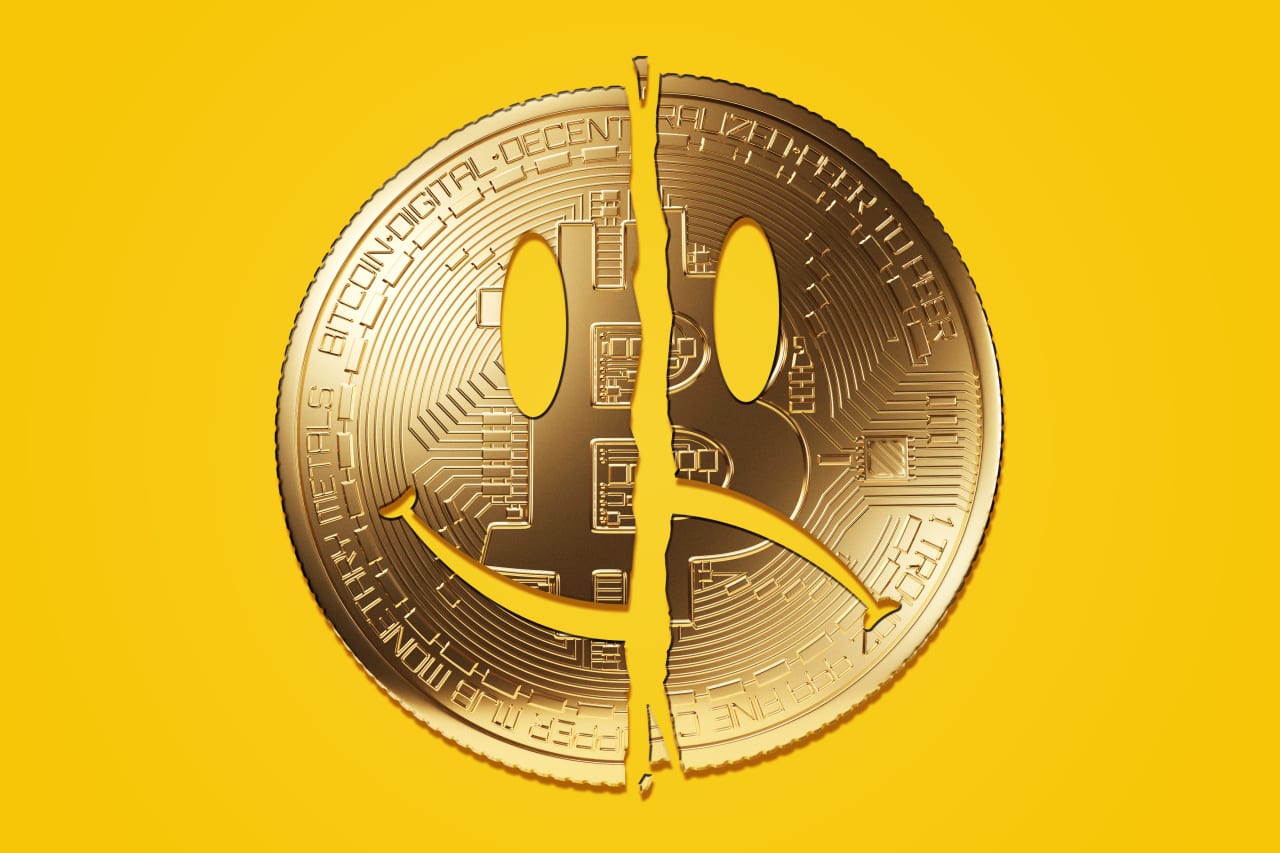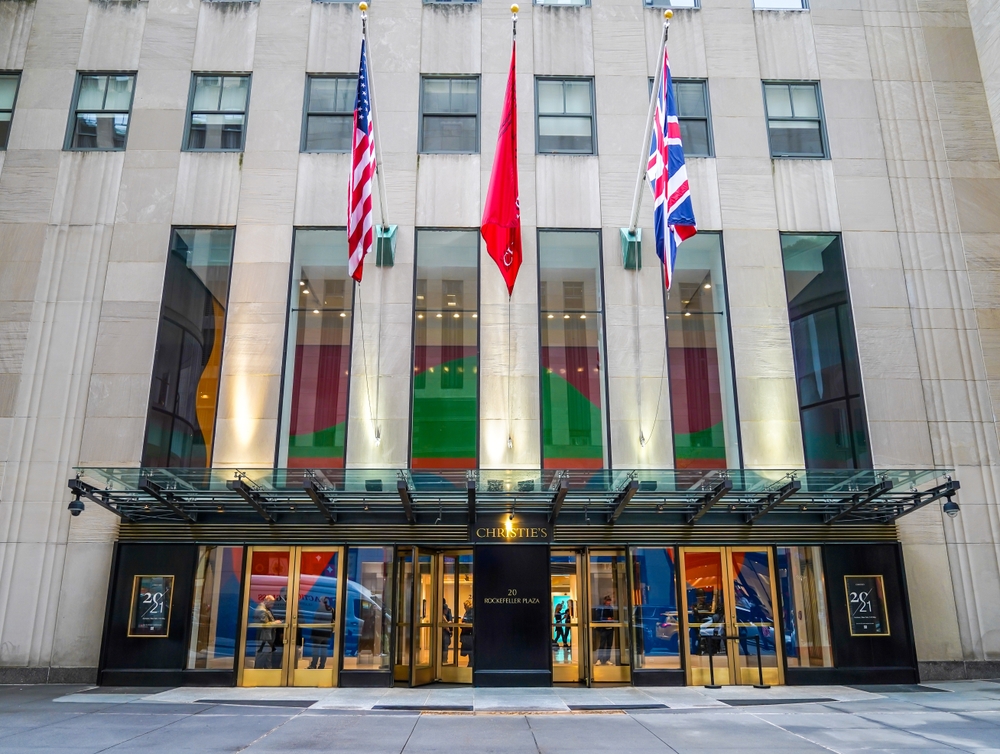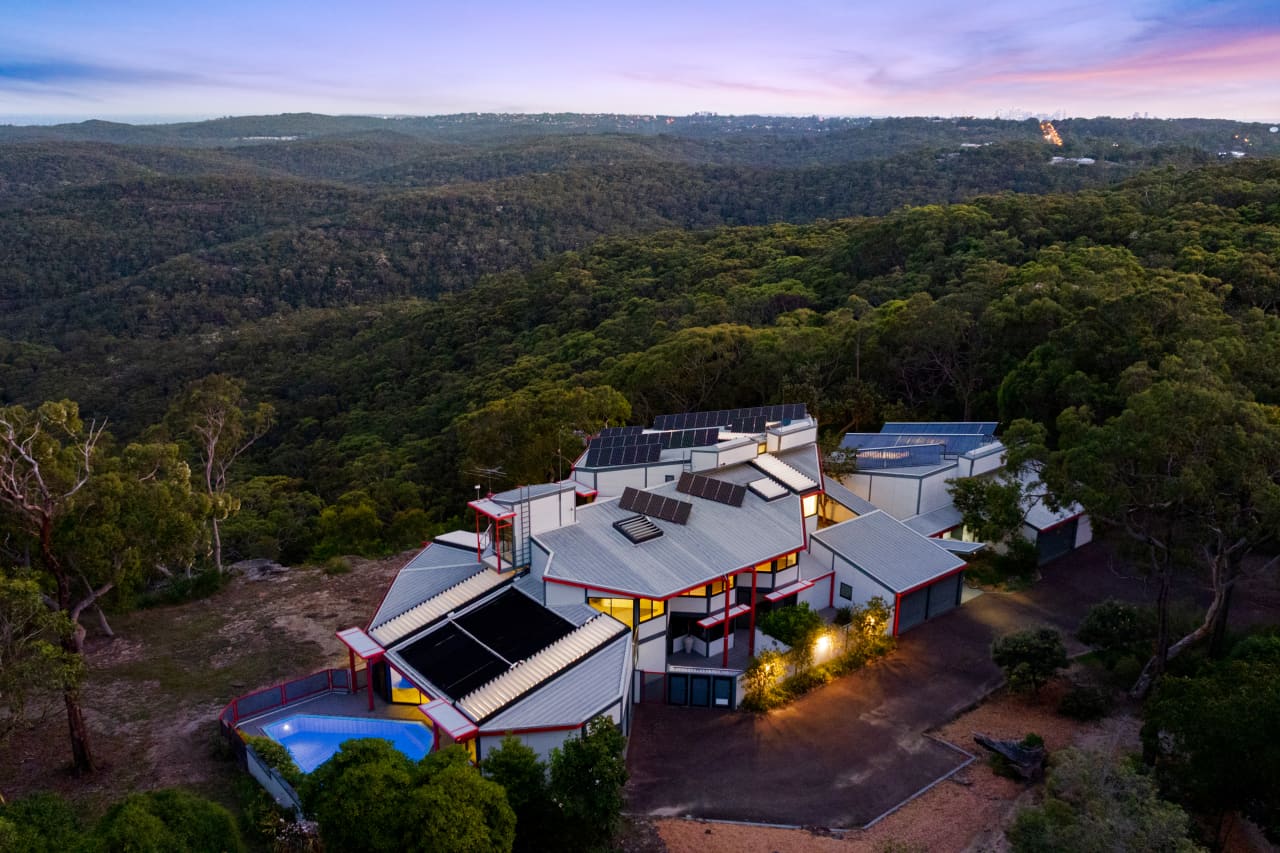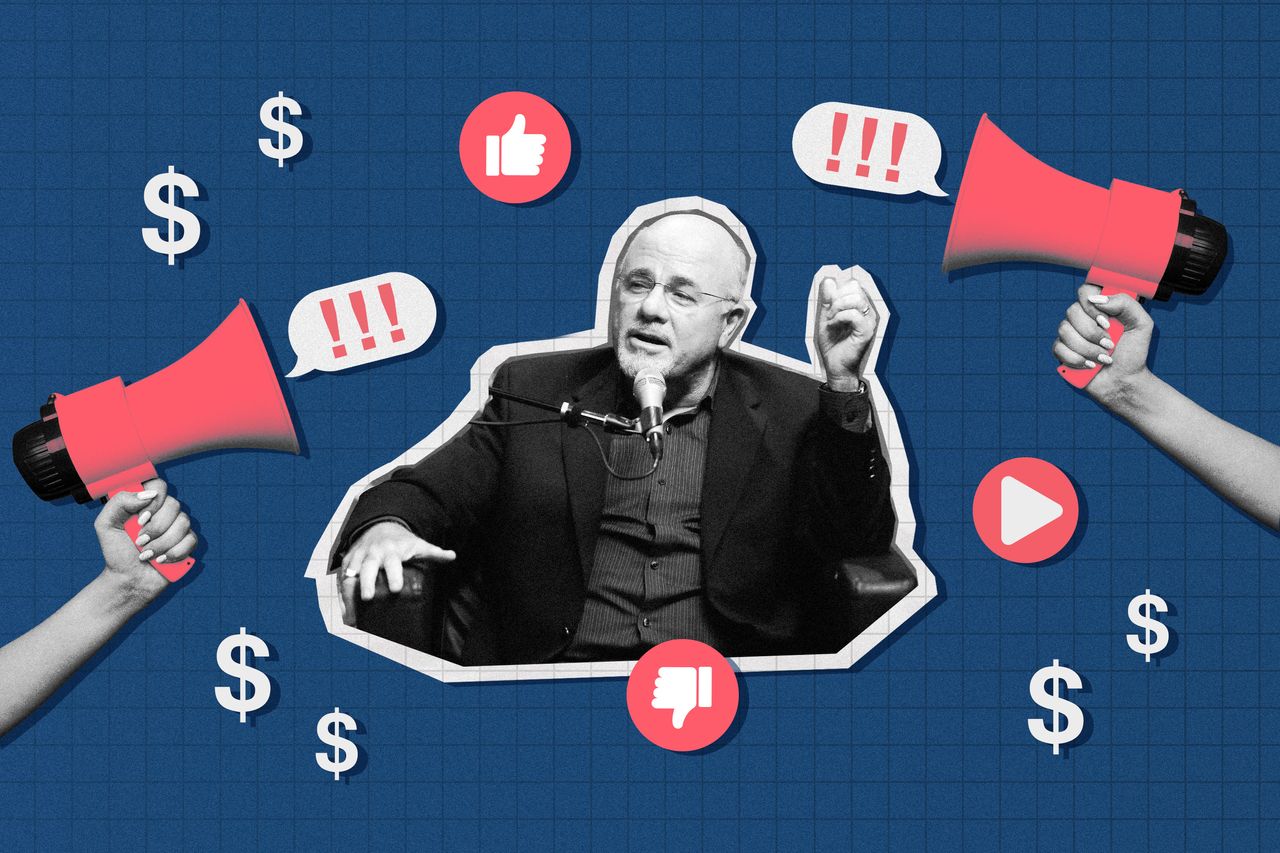Bitcoin Was Left for Dead. Why Wall Street Is Bringing It Back to Life.
A crash and the FTX scandal left the crypto’s reputation in tatters. Then ETFs gave it respectability.
Andrew Pratt doesn’t expect pushback when he pitches Bitcoin to his firm’s investment committee this week. Bitcoin’s 140% surge in the past year has all but erased memories of the crypto crash and scandals. And now that companies like BlackRock are backing Bitcoin funds, he sees no harm in adding 1% to some client portfolios.
“The downside, if it were to blow up, is just a percent,” says Pratt, investment manager at Wiser Wealth Management in Marietta, Ga. “But the upside benefits could be very large.”
Debating Bitcoin has come to feel futile. That the token has no underlying value or real-world uses increasingly seems beside the point. Buoyed by a flood of new crypto products and services, Bitcoin has scaled new heights, reaching $1.3 trillion in total market value and lifting the broader token market to $2.5 trillion.
Wall Street, after years of dismissing crypto, is now embracing it as a practical matter: There’s money to be made , fear of missing out, and fewer executives willing to call crypto an emperor with no clothes.
Many strategists argue that crypto remains a speculative trade without much underlying utility. Valuing it remains a black-art exercise of technical analysis, mixed with assumptions about supplies of tokens, demand from U.S. investors and overseas traders, and hopes that Bitcoin will endure as a “store of value” akin to gold . Making it all the more challenging are the opaque nature of crypto markets, thin liquidity and volumes, and valuation models that lack traditional analogues.
“To be a real asset, you have to generate cash flows,” says Barry Bannister, chief equity strategist at Stifel. “It’s also attempting to be a currency, but then it would have to be used for transactions. Until I see Bitcoin transacted in everyday life, it’s not a currency. It’s more of a speculative instrument.”
Yet on Wall Street, executives are now far more supportive. BlackRock CEO Larry Fink, a former critic, epitomizes the about-face. BlackRock scored a win with its iShares Bitcoin Trust , part of a crop of such ETFs approved in January. BlackRock’s fund is now the second-largest Bitcoin ETF on the market with nearly $18 billion in assets. And it’s promoted by Fink, who talks up Bitcoin in public, saying that he’s “very bullish” on Bitcoin’s long-term prospects in a recent Fox Business interview.
BlackRock’s backing of a Bitcoin ETF helped convince advisors like Pratt to consider buying some crypto for clients. And Fink is a powerful voice as head of BlackRock, the world’s largest asset manager with more than $10 trillion under management.
“When Larry speaks, a lot of people listen,” said WisdomTree Head of Digital Assets Will Peck, whose firm also launched a Bitcoin ETF and is creating tokens of assets like Treasuries that customers could then trade in digital wallets.
Some Wall Street firms and asset managers, meanwhile, are putting out lofty price targets for Bitcoin. Bernstein Research in late March raised its year-end price target to $90,000—a gain of 30% from recent prices around $69,000. Ark Invest CEO Cathie Wood, an uber Bitcoin bull, has said she expects the coins to trade above $1 million by 2030.
Bitcoin needs a few things to keep going right to maintain its momentum. Its run-up coincided with rising expectations that the Federal Reserve will soon cut rates; without favorable macro conditions, Bitcoin could slump like other areas of tech.
The price has also risen in anticipation of April’s “halving,” an event that occurs roughly every four years when the amount of Bitcoin that miners receive for processing transactions on the network drops in half. The next halving will cut the reward to 3.125 tokens, reducing new issuance sharply. Bulls see more gains with the event, but J.P. Morgan analysts have said Bitcoin’s price could fall to $42,000 after the halving “euphoria” wears off.
Is Bitcoin really worth $42,000 or $1 million? No one can say, reflecting the fact that Bitcoin lives in a mystery zone of valuation and trading dynamics. The token frequently has massive swings on seemingly little news. Regulators have said that many trading platforms, especially those based abroad, are subject to manipulation and “wash trading,” in which traders exchange tokens with themselves to create artificial volume.
Given the risks, some financial advisors aren’t convinced there’s no harm in owning a touch of Bitcoin. When Pratt mentioned to a colleague at another firm that he was considering adding Bitcoin to client portfolios, the response was, “That’s pretty insane,” Pratt says.
But the fact that traditional firms are now backing crypto may lead more people to invest. “Folks are buying these products assuming they’re legitimate because a legitimate Wall Street actor offers them,” says Mark Hays, a senior policy analyst for the Americans for Financial Reform. “That’s not the case.”
Also worrying to consumer advocates is that investment firms may sell and trade Bitcoin without traditional investor safeguards. Investment banks, for instance, are required to separate their equity research arms from the banking side and must disclose banking relationships; the goal is to avoid conflicts of interest in research. Since Bitcoin isn’t considered a security, such laws potentially don’t apply to it, according to former SEC counsel Tyler Gellasch.
“It’s easy to see the potential for the types of abuses that have plagued the investment research business since its creation,” says Gellasch.
Wall Street has far bigger aspirations for crypto than ETFs. While the products now hold more than $55 billion in assets, they aren’t big fee generators. BlackRock until next January will only charge a 0.12% expense ratio on the first $5 billion in assets of the iShares Bitcoin Trust, with the remaining assets carrying a 0.25% fee. Even after the waiver expires, the fund will only charge a quarter percentage point. Other firms including Invesco , Franklin Resources , and WisdomTree are charging similar fees or less. For firms like BlackRock with $17.9 billion in 2023 revenue, the ETFs alone won’t move the needle.
The real prize for much of Wall Street will be convincing pension funds, sovereign-wealth funds, and insurance-company portfolios to own Bitcoin and open actively traded separately managed accounts for crypto, says Steven McClurg, head of U.S. asset management for CoinShares . McClurg was co-founder of Valkyrie Investments, whose ETF business was recently acquired by CoinShares and was among the nine firms that launched a Bitcoin ETF in January . Now, he says he is competing with major investment managers to win the business of pensions and insurance companies’ portfolios.
“For the last four years it’s been me begging them to listen to me and now people are begging me to talk to them,” says McClurg of executives in traditional finance.
The financial industry’s embrace of Bitcoin isn’t entirely a recent phenomenon. Fidelity Investments was early with CEO Abigail Johnson heavily involved in the company’s early research and experiments into Bitcoin, according to her recounting at industry conferences. In 2017, the company started letting employees pay with Bitcoin in the company cafeteria. The firm started a blockchain meetup and developed an internal list of dozens of potential crypto use cases. Fidelity also started offering Bitcoin custody services to institutions.
Now Fidelity is all-in on crypto, with ETFs, custody, and brokerage services. Its research division puts out reports that are generally favourable to crypto. Fidelity is also offering digital assets accounts to 401(k) plan sponsors. Fidelity declined to comment on how much its 401(k) products and crypto platform have grown so far.
Some executives early on found Johnson’s Bitcoin focus risky but didn’t feel comfortable challenging her, partly because her family controls the company, according to a former Fidelity executive. Johnson herself said in 2022 that her early push into crypto “was very controversial in the organisation,” adding “a lot of people are still very confused, and you kind of can’t blame them.”
Yet 2022 may have marked a nadir for crypto’s reputational risk. Between late 2021 and the end of 2022, the token market crashed 70% amid a spate of scandals, culminating in the collapse of Sam Bankman-Fried’s trading platform FTX. In March, a federal judge sentenced Bankman-Fried to 25 years in prison for fraud.
Coinbase and some other large crypto companies survived, though, and the token market recovered amid a broader rebound in risky assets. Sentiment also got a big lift last June with BlackRock’s application to launch an ETF holding spot Bitcoin. Even though its product and the other applications wouldn’t be approved until January, others on Wall Street took it as a signal that it was safe to move into crypto.
“We continue to focus on education and believe it’s imperative for investors to consider the potential upside of investing in bitcoin and its volatile characteristics and risks,” BlackRock said in a statement.
Today, the conversation isn’t so much about whether to own crypto as how much. A few years ago, pro-Bitcoin firms and advisors would make the case that a 0.5% slug could improve risk-adjusted returns, said VanEck director of digital assets product Kyle DaCruz. Now advisors talk about 3% to 5% to a portfolio, he says.
“There are still folks asking the question ‘Is this a real asset?’ But the numbers are far less,” says DaCruz, whose employer offers a Bitcoin ETF and aims to launch an ETF holding Ether , the second-largest cryptocurrency.
Many advisors are getting ready to offer crypto to clients. The major wealth managers— Wells Fargo , Bank of America , UBS , and Morgan Stanley —can already include Bitcoin ETFs in some portfolios if clients ask. Some of their executives have met with ETF sponsors to consider whether to allow advisors to suggest Bitcoin ETF trades to clients, according to people familiar with the matter. UBS has no plans to put the ETFs in portfolios on a proactive basis, a person close to the firm said.
Pro-crypto advisors say the ETFs solve two problems: They make Bitcoin more seamless to own, and they allow advisors to charge fees far more easily on digital assets.
“For the first time in Bitcoin’s history, we have an easy and familiar way for everybody to participate,” says Ric Edelman, founder of the Digital Assets Council of Financial Professionals. Far more advisors are now seeking crypto education, he says, as well as personnel at companies that run model portfolios for other advisors. “Let’s be honest, advisors can now bill on the assets,” he says.
Major banks are also coming around to crypto after arguing for years that many of the industry’s products—like high-yield accounts and stablecoins pegged to the dollar—were similar to bank products and should be regulated as such. Now, lobbying groups like the Bank Policy Institute and American Bankers Association are urging the Securities and Exchange Commission to change rules that make it difficult for banks to custody crypto tokens.
Wall Street still has skeptics. JPMorgan Chase CEO Jamie Dimon is one, calling Bitcoin a “pet rock,” though his firm has experimented with blockchain technology. Goldman Sachs Wealth Management chief investment officer Sharmin Mossavar-Rahmani recently told The Wall Street Journal that her firm’s executives are “not believers in crypto.” Vanguard remains unmoved, saying it won’t put the new Bitcoin ETFs on its brokerage platform due to the token’s lack of fundamentals.
Washington, for its part, is still cracking down on crypto. SEC enforcement is ongoing—notably a lawsuit the SEC is pursuing against Coinbase Global. SEC Chair Gary Gensler has said the entire industry is rife with fraud. Another big test is coming in May when the SEC will decide whether to approve ETFs holding Ether, the second largest token.
Firms including Coinbase have lobbied to convince Congress to pass crypto-specific rules though haven’t yet garnered enough support. The companies have given more than $80 million to pro-crypto political action committees this election cycle, a huge amount by Washington standards. The money will support crypto friendly candidates while blocking detractors.
“It gets harder and harder every year to find a crypto skeptic,” said Coinbase CEO Brian Armstrong put it at a D.C. policy event in March.
His comment reflects the fact that a technology meant to disrupt the financial industry is now being embraced as prices rise and fees roll in. While the Bitcoin bears may have been silenced for now, however, they may only be hibernating until the next crash.
— Paul R. La Monica contributed to this article.
 Copyright 2020, Dow Jones & Company, Inc. All Rights Reserved Worldwide. LEARN MORE
Copyright 2020, Dow Jones & Company, Inc. All Rights Reserved Worldwide. LEARN MORE
This stylish family home combines a classic palette and finishes with a flexible floorplan
Just 55 minutes from Sydney, make this your creative getaway located in the majestic Hawkesbury region.
The auction house plans for sales to proceed, including for a Warhol ‘Flowers’ estimated at $20 million
Christie’s remained in the grip of an ongoing cyberattack on Tuesday, a crisis that has hobbled the auction house’s website and altered the way it can handle online bids. This could disrupt its sales of at least $578 million worth of art up for bid this week, starting tonight with a pair of contemporary art auctions amid New York’s major spring sales.
Christie’s said it has been grappling with the fallout of what it described as a technology security incident since Thursday morning—a breach or threat of some kind, though the auction house declined to discuss details because of its own security protocols. Christie’s also declined to say whether any of the private or financial data it collects on its well-heeled clientele had been breached or stolen, though it said it would inform customers if that proves to be the case.
“We’re still working on resolving the incident, but we want to make sure we’re continuing our sales and assuring our clients that it’s safe to bid,” said Chief Executive Guillaume Cerutti.
Sotheby’s and Phillips haven’t reported any similar attacks on their sites.
Christie’s crisis comes at a particularly fragile moment for the global art market. Heading into these benchmark spring auctions, market watchers were already wary, as broader economic fears about wars and inflation have chipped away at collectors’ confidence in art values. Christie’s sales fell to $6.2 billion last year, down 20% from the year before.
Doug Woodham, managing partner of Art Fiduciary Advisors and a former Christie’s president, said people don’t want to feel the spectre of scammers hovering over what’s intended to be an exciting pastime or serious investment: the act of buying art. “It’s supposed to be a pleasurable activity, so anything that creates an impediment to enjoying that experience is problematic because bidders have choices,” Woodham said.
Aware of this, Cerutti says the house has gone into overdrive to publicly show the world’s wealthiest collectors that they can shop without a glitch—even as privately the house has enlisted a team of internal and external technology experts to resolve the security situation. Currently, it’s sticking to its schedule for its New York slate of six auctions of impressionist, modern and contemporary art, plus two luxury sales, though one watch sale in Geneva scheduled for Monday was postponed to today.
The first big test for Christie’s comes tonight with the estimated $25 million estate sale of top Miami collector Rosa de la Cruz, who died in February and whose private foundation offerings include “Untitled” (America #3),” a string of lightbulbs by Félix González-Torres estimated to sell for at least $8 million.
Cerutti said no consignors to Christie’s have withdrawn their works from its sales this week as a result of the security incident. After the De la Cruz sale, Christie’s 21st Century sale on Tuesday will include a few pricier heavyweights, including a Brice Marden diptych, “Event,” and a Jean-Michel Basquiat from 1982, “The Italian Version of Popeye Has no Pork in his Diet,” each estimated to sell for at least $30 million.
But the cyberattack has already altered the way some collectors might experience these bellwether auctions at Christie’s. Registered online bidders used to be able to log into the main website before clicking to bid in sales. This week, the house will email them a secure link redirecting them to a private Christie’s Live site where they can watch and bid in real time. Everyone else will be encouraged to call in or show up to bid at the house’s saleroom in Rockefeller Center in Midtown Manhattan.
If more bidders show up in person, the experience might prove to be a squeeze. During the pandemic, Christie’s reconfigured its main saleroom from a vast, well-lit space that could fit several hundred people into a spotlit set that more closely evokes a television studio, with far fewer seats and more roving cameras—all part of the auction industry’s broader effort to entice more collectors as well as everyday art lovers to tune in, online.
Once this smaller-capacity saleroom is filled, Christie’s said it will direct people into overflow rooms elsewhere in the building. Those who want to merely watch the sale can’t watch on Christie’s website like usual but can follow along via Christie’s YouTube channel.
Art adviser Anthony Grant said he typically shows up to bid on behalf of his clients in these major sales, though he said his collectors invariably watch the sales online as well so they can “read the room” in real time and text him updates. This week, Grant said a European collector who intends to vie for a work at Christie’s instead gave Grant a maximum amount to spend.
Grant said the cyberattack popped up in a lot of his conversations this past weekend. “There’s a lot of shenanigans going on, and people have grown so sensitive to their banks and hospitals getting hacked,” he said. “Now, their auction house is going through the same thing, and it’s irksome.”
Just 55 minutes from Sydney, make this your creative getaway located in the majestic Hawkesbury region.
Consumers are going to gravitate toward applications powered by the buzzy new technology, analyst Michael Wolf predicts























